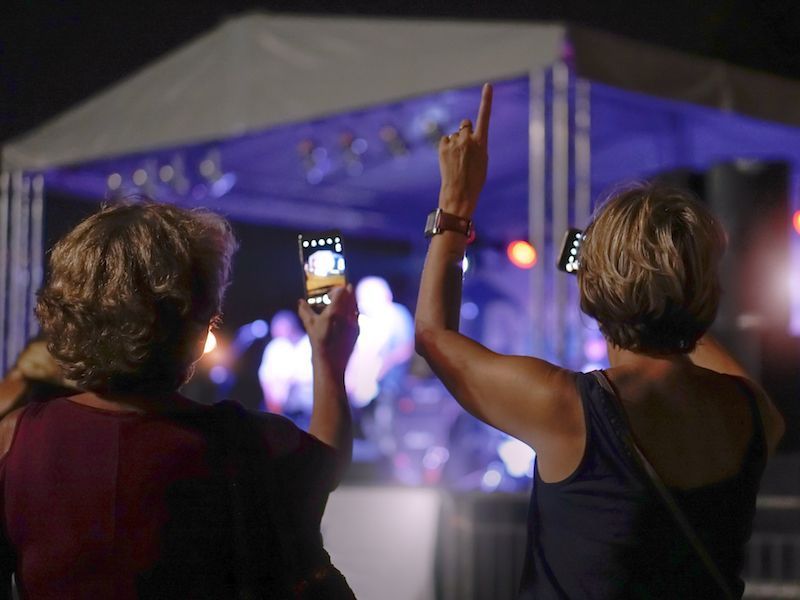Your Hearing Can Definitely be Injured by Summer Activities, Here’s How to Protect Them

We’ve been looking forward to summer activities all year: going to the beach, relaxing by the pool, and damaged hearing? That’s right, summer has many hidden hazards to your hearing, either from loud noises or the external situations you could find yourself in. Any sounds over 80 decibels could injure your ears, while swimming in pools or other bodies of water can bring about enduring loss of hearing. To keep your hearing safeguarded this summer, you need to be mindful of your surroundings and take preventative measures. Here are six of the summer’s hidden hearing hazards.
At Concerts, Use Ear Protection
Whether you’re at an indoor arena or an outdoor concert venue you still need to wear ear protection during concerts. Concerts can reach over 90 decibels, even at outdoor concerts, which is inside of the danger zone of hearing loss. So whether you’re attending an outside or inside shows, it’s a practical plan to wear earplugs. Earplugs dampen the sound while still letting you hear and enjoy the music. If you’re going to a performance with young kids, consider buying them a heavy duty pair of earmuffs because children have more sensitive hearing than adults.
It’s Not Just Loud at Fireworks
Honestly, there are a lot of reasons to avoid fireworks in the summer. This is not about the professional 4th of July fireworks show, we mean the backyard fireworks that cause hundreds of injuries during the summer season. Backyard fireworks achieve volume levels of nearly 155 which can hurt your ears as well as causing hand injuries, blindness and backyard fires. This 4th of July, leave the fireworks to the pros and enjoy the display from a protected and sound distance.
Hearing Loss Can be Brought About by Lawnmowers
If you’re serious about your lawn, it’s likely that you’re out there each week on your mower, trimming your bushes and using your edger. But that muffled sensation in your ears is an indication that your hearing has taken damage. That’s because the lawn tools, which are constantly loud, have a slow and steady impact on your hearing. If you’ve ever seen lawn care pro’s, you most likely have noticed them using ear protection, you should take a cue from them and wear earplugs or earmuffs next time you work on your lawn to ensure your ears doesn’t get injured.
Here’s How to Protect Your Ears When You go Swimming
Huge numbers of people suffer from swimmer’s ear every summer, which happens when bacteria-loaded water becomes trapped inside your ear canal. The bacteria will then infect the ear, producing swelling and painful earaches. It’s not exclusively lakes and rivers that hold these bacteria, they can also be found in pools and hot tubs if they aren’t cleaned and treated thoroughly. No irreversible damage should occur if you have your hearing checked out by a hearing specialist. To protect against swimmer’s ear, however, you will want to wear specialized swimming earplugs in the pool and get your pool water tested to make sure the chemical balance is safe.
Boats and Other Water Sports
If you love the water, the summer season is beach and boating time for you. But, boat and jet ski engines are often noisy, we’re talking more than 100 decibels. Lasting hearing impairment can be the result after around 15 minutes of exposure to that much noise. In this case also, using a pair of disposable foam earplugs is a smart idea.
Car Races Can Harm Your Hearing
It doesn’t make a difference what type of auto racing you enjoy, midget, Formula 1, drag racing, motorcycle Formula 1. If you attend a lot of auto-races this year, they all present a risk. It’s calculated that volume levels can go over 120 decibels at many races, which is absolutely in the danger zone for hearing damage. Earplugs are your best friends at these races, whereas your kids should definitely wear the earmuffs we mentioned earlier. Because you may not get to enjoy the sounds of any races in the future if you don’t.


